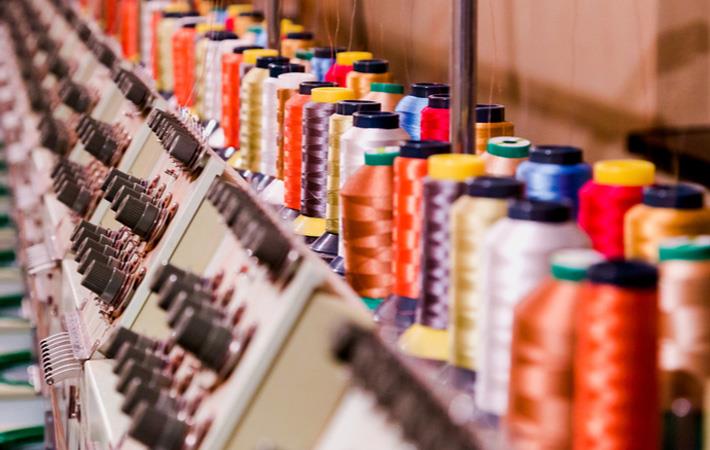Interviews
UK urged to finish clothing-textiles EPR review by 2022
29 Oct '20
3 min read

Pic: Shutterstock
The UK Textile Recycling Association (TRA) has urged the government to ensure that the review on extended producer responsibility (EPR) on clothing and textiles that they committed to in the Waste Strategy for England 2018 is completed by 2022. In a recent paper, TRA highlighted the huge environmental and social impacts associated with the clothing supply chain that makes the case for completing this review at the earliest compelling and necessary.
The paper also cited eight key issues necessary to address to deliver a robust and comprehensive EPR framework, that would deliver substantial sustainable improvements across the clothing supply chain and a truly circular economy for the sector.
“After the review has taken place, should a decision be made to instigate an EPR scheme, we propose that a robust framework should be applied that addresses key principles, thus ensuring that a comprehensive and world leading system is implemented,” the TRA paper said.
This includes setting clear aims and objectives to reduce consumption and increase re-use; ensuring businesses that are responsible for putting clothing and other ‘in-scope’ products onto the market should bear the full cost of managing the impact of their product on human health and the environment; delivering better, more sustainable textile products that consume less resources and are easier to recycle; engaging the consumer in the EPR scheme; ensuring that all businesses that are responsible putting ‘in-scope’ clothing and other products onto the market contribute; and requiring all collection, sorting and recycling businesses to be audited in order to qualify as approved recipients of fees.
It is estimated that the fashion industry has the fourth biggest environmental impact across all business sectors (in terms of carbon, water and waste) in the United Kingdom next to housing, transport and food.
The current export markets for used clothing are under sustained pressure particularly as competition for exports from other countries like China are set to expand massively.
The future of the African markets remains uncertain and it seems unlikely that the continent can accept the ever-increasing amount of used clothing that will arise as consumption of new clothing continues to increase globally.
The UK government, in its publication ‘Our Waste, Our Resources, A Strategy for England 2018’, has committed to invoking the ‘polluter pay’ principle and harness the potential of EPR. It has identified five priority material streams for consideration under this commitment including textiles.
As part of this, the government has stated that “by the end of 2025 we will have reviewed and consulted on measures such as Extended Producer Responsibility and product standards for five new waste streams, two of which we plan to complete by 2022.”
The paper also cited eight key issues necessary to address to deliver a robust and comprehensive EPR framework, that would deliver substantial sustainable improvements across the clothing supply chain and a truly circular economy for the sector.
“After the review has taken place, should a decision be made to instigate an EPR scheme, we propose that a robust framework should be applied that addresses key principles, thus ensuring that a comprehensive and world leading system is implemented,” the TRA paper said.
This includes setting clear aims and objectives to reduce consumption and increase re-use; ensuring businesses that are responsible for putting clothing and other ‘in-scope’ products onto the market should bear the full cost of managing the impact of their product on human health and the environment; delivering better, more sustainable textile products that consume less resources and are easier to recycle; engaging the consumer in the EPR scheme; ensuring that all businesses that are responsible putting ‘in-scope’ clothing and other products onto the market contribute; and requiring all collection, sorting and recycling businesses to be audited in order to qualify as approved recipients of fees.
It is estimated that the fashion industry has the fourth biggest environmental impact across all business sectors (in terms of carbon, water and waste) in the United Kingdom next to housing, transport and food.
The current export markets for used clothing are under sustained pressure particularly as competition for exports from other countries like China are set to expand massively.
The future of the African markets remains uncertain and it seems unlikely that the continent can accept the ever-increasing amount of used clothing that will arise as consumption of new clothing continues to increase globally.
The UK government, in its publication ‘Our Waste, Our Resources, A Strategy for England 2018’, has committed to invoking the ‘polluter pay’ principle and harness the potential of EPR. It has identified five priority material streams for consideration under this commitment including textiles.
As part of this, the government has stated that “by the end of 2025 we will have reviewed and consulted on measures such as Extended Producer Responsibility and product standards for five new waste streams, two of which we plan to complete by 2022.”
Fibre2Fashion News Desk (DS)
Popular News
Leave your Comments
Editor’s Pick
































-Ltd..jpg?tr=w-120,h-60,c-at_max,cm-pad_resize,bg-ffffff)





.jpg?tr=w-120,h-60,c-at_max,cm-pad_resize,bg-ffffff)
.jpg?tr=w-120,h-60,c-at_max,cm-pad_resize,bg-ffffff)






